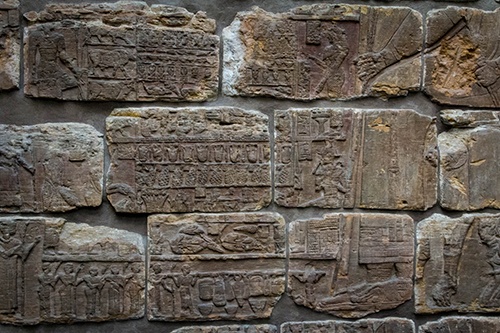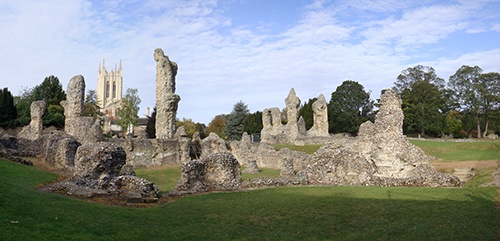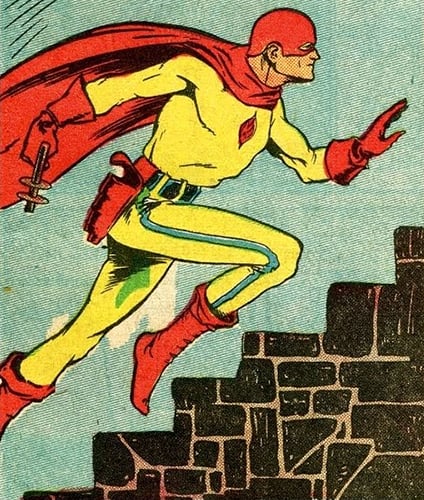batavia high school class of 2019 class size
History. Maybe it's written by the victors. Maybe it repeats itself, first as tragedy and second as farce. Or maybe it doesn't repeat, but rhymes. In any case, it's a key part of your high school (and lifelong!) education. But how should you study it? What classes should you take in high school to satisfy college requirements? What options are there for going above and beyond? And what can you do if you are a history fiend who simply cannot get enough learning about the past? Read on to learn about high school and college expectations, honors and AP classes, and ways to expand your understanding of other social sciences! Like the car commercials say, your mileage may vary – in this case, each high school has its own standards for how many years of history and/or other social sciences you need to take to graduate. Most public schools in most states require 2 to 3 years of social sciences (this may be different for private schools). Besides history, social sciences are classes like economics, geography, world cultures, civics, and government. So, definitely check with your own high school to see how many years you need and what counts as a social science. Again, there is no hard and fast rule. Still, most colleges want you to have taken at least 2 standard history courses: Overall, colleges want to see 2 to 3 years of social science classes, but you should definitely check the admissions requirements of your target school to see what they expect. Sometimes colleges don't have requirements but they do offer suggestions. For example, while UCLA requires at least two years of social sciences, Harvard suggests a minimum of two years. Sometimes expectations depend on what you're applying to study. For example, if you want to study engineering, you probably don't need to take as many social science courses. Conversely, if you're applying with a plan to study social science, this is where you need to excel and demonstrate your interest. The Do-More Kid slowly hovered upstairs, mildly exceeding the expectation that he would simply walk. If you're angling to exceed expectations, the best place to start is with your own school. Honors classes will most likely be similar to the standard classes your school offers, but they will go into more depth and explore broader contexts for the historical topics you study. On the one hand, you'll have to work much harder, but on the other hand you have a richer understanding and be way better prepared for college-level history courses. Finding more resources to feed your interest isn't at all impossible. This is the time to ransack your high school's course catalog. Are there any electives which focus on a specific era in history (like the 19th century) or on a particular group of people (like the Mayans)? You know what teachers love? Interested and engaged students! Can you ask a teacher to help you set up an independent project or independent study to explore your interests? For example, you could focus on a particular slice of history (like trade along the Silk Route), or you could trace the development of one specific idea through time (like the concept of passive resistance). For instance, Stanford University has an online high school which features 5 history courses and 1 guided independent study option. You can sign up to take just one class or all of them. Brown University also offers a set of online pre-college courses, including two related classes on history and American studies. Check out our guide to the Summer Institute for the Gifted or our description of Stanford's two summer programs. Finally, if you're super confident in your abilities, or if you have a specific interest you really want to learn about, you can take an online college-level class. Not only will you get a sense of what history classes are like in college, but doing well will also look great on your transcript. You may even get college credit, just like for an AP course! So maybe you are already a history buff, and are ready to explore other ways of studying how societies, cultures, and peoples interact. Then this is the time to investigate other classes that will broaden and deepen your understanding of history by putting into other contexts! These are classes like: economics, civics, government, politics, world cultures, world religions, geography, and so on. Check out other social sciences AP classes: Also, check out other social sciences IB classes: There are even 3 IB social science classes offered online: Ask your school counselor if you can apply to make your school a local chapter of the Rho Kappa Social Studies Honor Society from the National Council for the Social Studies. This way, you and others like you can be inducted into this society, which is the only national organization for high school juniors and seniors that recognizes excellence in the field of Social Studies. So excited about history that you can't wait to grab a textbook to learn? We're here for you. Read through our biographic sketch of Ida Lewis, lighthouse keeper (and so much more); use our guide to understand the Platt Amendment and its ramifications; and grapple with the US political system with our articles on checks and balances and how the executive branch can check the judicial branch. Still wrestling over whether AP or IB is better? Check out our guide to deciding which is right for you. Ready to kick back and learn some history (but not in a school way)? Our articles on the history of hip hop, invention of the 3-hole punch, and Loomis Fargo heist should do the trick. Curious how your history skills will apply to the SAT? Well, for one thing, they've probably made you a better writer. Read about how to improve your SAT Writing score, or better yet, how to get a perfect 800 and how to get a 12 on the SAT Essay. And don't forget to read about the new enhanced ACT Writing test. One of the single most important parts of your college application is what classes you choose to take in high school (in conjunction with how well you do in those classes). Our team of PrepScholar admissions experts have compiled their knowledge into this single guide to planning out your high school course schedule. We'll advise you on how to balance your schedule between regular and honors/AP/IB courses, how to choose your extracurriculars, and what classes you can't afford not to take. 
What Do High Schools Expect?
 Random pile of rocks or the remains of England's wealthiest abbey after Henry VIII and his Reformation was done with it? History = amazing true stories.
Random pile of rocks or the remains of England's wealthiest abbey after Henry VIII and his Reformation was done with it? History = amazing true stories. What Do Colleges Expect?
How Can I Exceed Expectations?

Honors Classes
AP History Classes
There are three history AP options:
IB Diploma Classes
There are two different IB course progressions for history:
What If I Want Even More History?
Find a great elective or two
Design your own course
Take a class online
Take a class over the summer
Take a college class
How Else Can I Study Social Sciences?
How Else Can I Show My Social Science Achievements?
What's Next?


About the Author
Anna scored in the 99th percentile on her SATs in high school, and went on to major in English at Princeton and to get her doctorate in English Literature at Columbia. She is passionate about improving student access to higher education.
batavia high school class of 2019 class size
Source: https://blog.prepscholar.com/the-high-school-history-classes-you-should-take
0 Response to "batavia high school class of 2019 class size"
Publicar un comentario